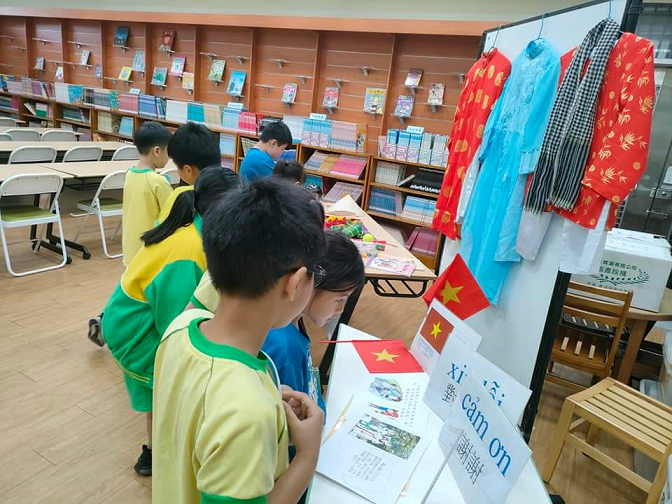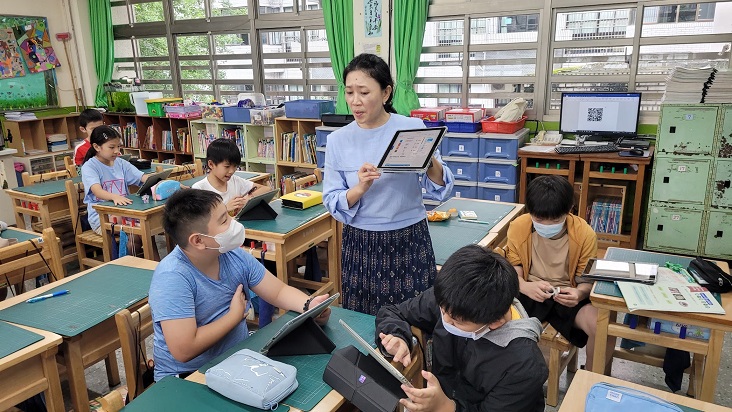In the 113th school year, New Taipei City launched 2,056 new resident language courses, providing nearly 5,000 students with the opportunity to choose from various classes. This figure represents a more than 20% increase compared to the 112th school year. Vietnamese classes were offered 947 times, Indonesian 361 times, and Thai 356 times, making these the top three languages, setting new records in both class offerings and student participation, ranking first nationwide.
The Education Bureau stated that the new resident language courses for elementary and middle schools have been implemented gradually since the 108 Curriculum Guidelines and are fully promoted this year. The Education Bureau is committed to realizing the "Ten-Year Vision for New Residents - A Seamless Learning Policy," encouraging high schools and vocational schools to actively offer Southeast Asian second language or club courses. This initiative provides a completely new resident language learning system for students from elementary school to high school. Any student can take these courses, regardless of their identity, to enable second-generation immigrants and general students to learn Southeast Asian languages and expand their global perspectives. Second-Generation Immigrants and General Students Learning Southeast Asian Languages, Expanding Global Perspectives (Image / Sourced from New Taipei City Government Education Bureau Website)
Second-Generation Immigrants and General Students Learning Southeast Asian Languages, Expanding Global Perspectives (Image / Sourced from New Taipei City Government Education Bureau Website)
Zeng Xiuzhu, principal of Xiulang Elementary School and leader of the New Resident Language Support Group, stated that enhancing the professional skills of teaching support personnel is the group’s top priority. This year, AI tools will be introduced to assist teaching staff in creating materials and adjusting content. The Google Gemini Pro chatbot helps generate multiple teaching plans and analyze students' learning performance, providing precise feedback to improve learning outcomes.
Wang Shuling, vice leader of the support group and principal of Chengzhou Elementary School, pointed out that to revitalize new resident language teaching methods, the group is incorporating digital technology such as Google Gemini Pro chatbot, Suno AI song generator, and D-ID AI video generator to enhance teaching efficiency and creativity. These tools create a more dynamic learning experience for students and support teachers in helping students better understand different cultures.
Li Yanjing, a teaching assistant from Myanmar, shared that through the Suno song generator and D-ID AI video generator, she could quickly find relevant teaching resources and prepare content more effectively. For example, she used these tools to introduce the cultural background of Myanmar's Water Festival, helping students understand the significance of water splashing.
Lin Peiqi, a student from Xiulang Elementary, mentioned that the AI-generated teaching videos made her feel as if she was immersed in a foreign culture, sparking her interest in learning about different cultures.
The Education Bureau emphasized that the AI digital era is an important trend in modern society. By using innovative AI teaching methods and joining collaborative communities, new resident language teachers can receive immediate feedback on student learning outcomes, bringing the world into the classroom. This approach enhances students' autonomous learning abilities and helps cultivate digitally literate global citizens.







